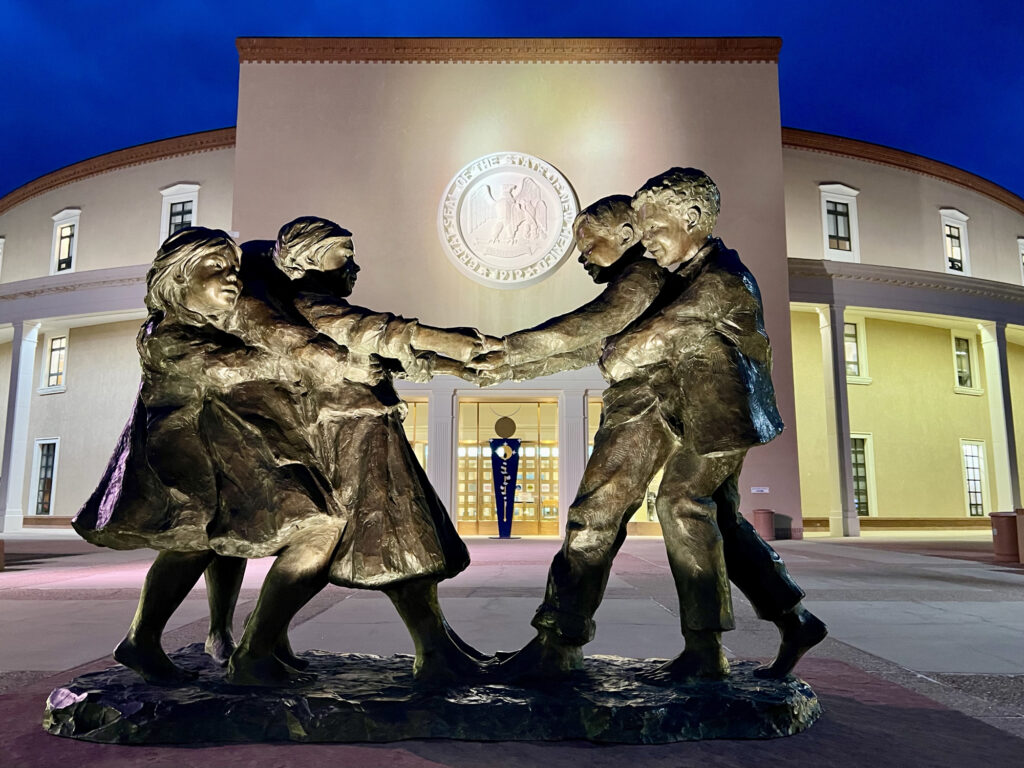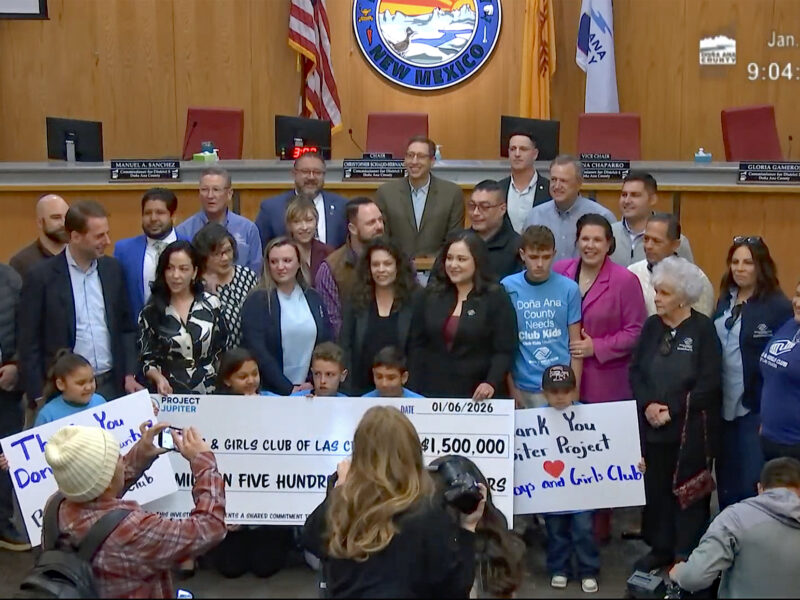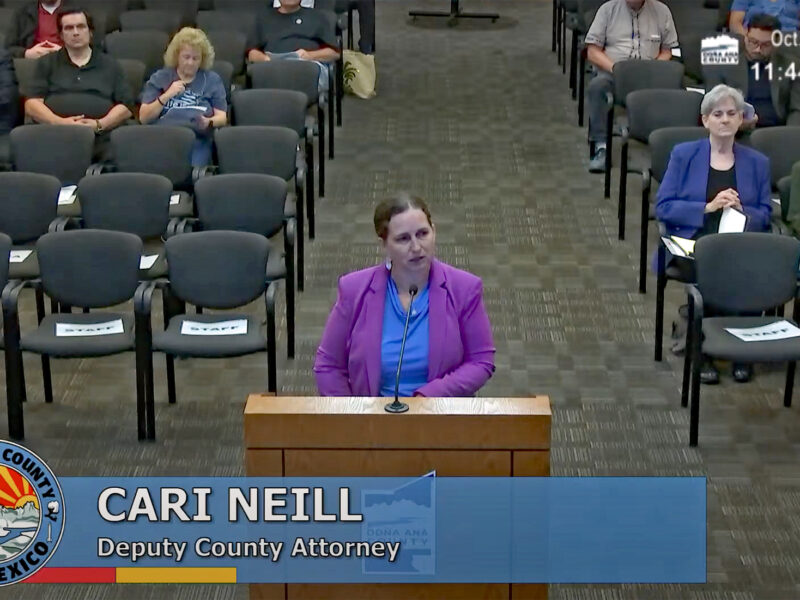
A new proposal to dramatically rewrite the state’s public records law suggests that the government should police how citizens use information we own.
Among the many changes Rep. Christine Chandler, a Los Alamos Democrat, proposes in House Bill 283 is the creation of a task force whose duties would include studying and making recommendations “on the misuse of the Inspection of Public Records Act by requesters, including possible penalties and the enforcement of penalties.”
Folks, there is no such thing as misuse of IPRA. The law’s purpose is to facilitate your access to government records you already own. You can do with them as you please.
The opening words in IPRA are, “Every person has a right to inspect public records of this state.” Providing people with the documents they request, IPRA states, “is an essential function of a representative government.”
Here’s the critical clause in IPRA: “No person requesting records shall be required to state the reason for inspecting the records.”
That phrase is designed to ensure no agency can keep public records from you for any reason. The mayor doesn’t get to know if you’re backing his opponent in the upcoming election before his city clerk decides whether to provide the documents you request. It doesn’t matter if you’re planning to use those records against him. You’re allowed to do that.
The reason you want to see records is none of the government’s business. That’s explicit in IPRA.
Chandler and some others in the Legislature and local governments want to change that. We must stop them.
Desecrating IPRA
The push to police people who request public records in the current session began with a bill I’ve already written about sponsored by Rep. Kathleen Cates, a Rio Rancho Democrat. That legislation sought to allow government agencies to cut off some people’s access to public records and sanction them for being “vexatious.” Under heavy criticism, Cates withdrew her legislation.
So we’re on to Chandler’s bill, which appears to have the backing of the New Mexico Municipal League. That organization has been circulating a lengthy report to legislators and others complaining that complying with IPRA requests is straining local government resources.
Chandler’s legislation seeks to divide requesters into two categories — those with commercial motivations, and everyone else. That would allow the cities and towns the Municipal League represents to ask people why they want records they’re requesting, and to extract big fees from those who would profit off obtaining public records.
And included in Chandler’s bill is a blanket ban on using law enforcement records to solicit victims or the relatives of victims of crimes or accidents. It’s another excuse for government agencies to ask requesters why they want documents.
A separate and relatively new state statute already bans attorneys and health-care providers from using police records for this purpose. Now Chandler proposes moving this prohibition into IPRA and expanding it so that no one is allowed to use such information to solicit victims or their relatives.
These proposals — fees for some requesters but not others, and restrictions on what you can do with information in police reports — would desecrate IPRA’s ban on the government demanding to know why you want records.
As a journalist, I’ve used police reports to find contact information for relatives of victims so I could offer to tell the stories of their loved ones. Folks are often grateful for the chance to have people they cared about remembered as more than statistics in a crime blotter. These are some of the most meaningful articles I’ve written.
In the future, would I face “penalties” for “misuse” of IPRA under this proposed change to the law if I reached out to victims’ family members with an offer to tell their stories?
A slippery slope
The push to expand the statute that regulates what attorneys and health-care providers can do with police reports illustrates a frightening truth: Once we permit such a prohibition, government officials will try to broaden it.
Growing the police state in the way this bill threatens is terrible public policy and an incredibly slippery slope.
If we let government charge extra fees to people with a commercial motivation, they’ll soon propose charging others extra too — perhaps people who make too many requests or are otherwise “vexatious.”
If we let government police what we can do with law enforcement reports, they will try to restrict who can access other records and what they can do with them. The Municipal League’s report notes that some other states limit public access to 911 audio recordings, traffic accident reports, traffic citations, and other materials.
They’ll seek to make violations into crimes. They’ll try to add punishments. Then they’ll propose that some folks shouldn’t even have access to public records.
The Municipal League report hints at this when it lists Michigan, Louisiana, Kentucky, Connecticut, Arkansas, South Carolina and Texas as states that “prohibit incarcerated individuals from submitting a records request or limit the types of records they can request.”
We cannot allow New Mexico to move in this direction.
No time for this nonsense
I expect our state government to defend democratic laws, systems and principles. Chandler’s bill is instead an assault on democracy.
Rather than debating ways to protect our poor, overburdened government agencies from the public, I wish we were discussing modernizing their record-keeping systems. We could be investigating systems that digitize, categorize and automate that would allow citizens to access records without needing to file requests.
That is the way to address workload challenges that are straining government agencies. I’d welcome and participate in that conversation.
Instead, we’re spending our time fighting off an unimaginative and anti-democratic attempt to take power from citizens.
The federal government is coming for our democracy every day. There’s no time for this state-level nonsense. In New Mexico, the government doesn’t get to ask why you want access to public records. For the sake of our democracy, we must preserve this right.
Disclosure: Rep. Sarah Silva, D-Las Cruces, who could be among those considering House Bill 283, is my spouse.


